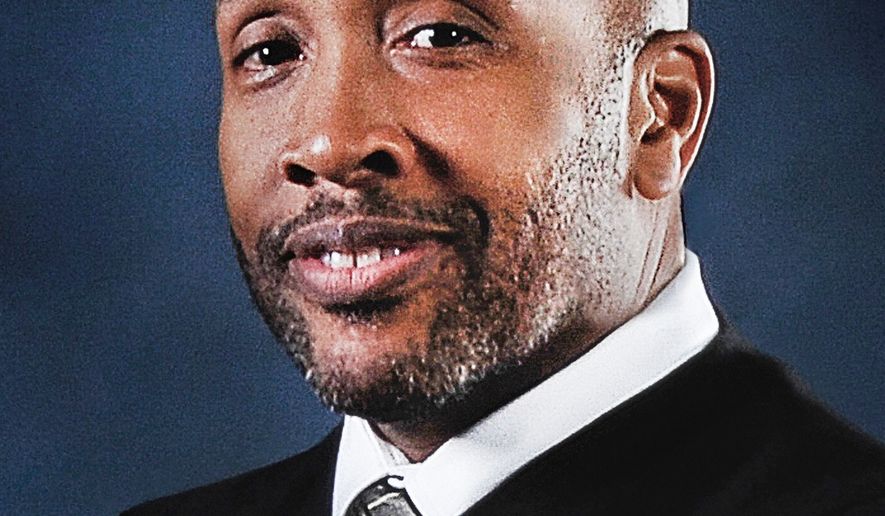BALTIMORE — Attorneys for the only police officer charged with murder in the death of Freddie Gray announced Thursday they would call as a witness the man who briefly rode in the police van with Gray, after the trial judge had scolded prosecutors for not providing the man’s potentially exculpatory evidence to the defense.
In opening arguments Thursday, Andrew Graham, the lead attorney for Officer Caesar Goodson, said the testimony of Donta Allen would prove that Gray’s mortal injuries resulted from a freak accident.
But Allen, who is serving 10 years in prison for violating probation in a 2013 armed robbery conviction, has changed his story several times, and court watchers said Thursday the defense’s decision to put him on the stand was surprising.
“It’s always surprising for a party to call Donta Allen with his history of prior convictions,” said Doug Colbert, a University of Maryland law professor who has been following the Gray trials. “Usually, credibility issues arise.”
Officer Goodson, 46, drove the van in which Gray, a 25-year-old black man, sustained a broken neck. Gray died April 19, 2015, a week after being injured, and his death and funeral ignited days of protest and rioting in Baltimore, as well as fed the national Black Lives Matter movement.
Officer Goodson faces the most serious charges of the six officers accused in Gray’s arrest and death: second-degree “depraved heart” murder, manslaughter, assault, misconduct in office and reckless endangerment. Of the earlier trials of two other officers, one ended in a hung jury and the other with an acquittal on all charges.
SEE ALSO: Impaired-driving deaths trend higher while DUI arrests drop, report finds
Allen’s testimony could prove problematic because of how many times he has changed his story. He told officers at the Western District homicide office in April 2015 that Gray had been thrashing around the van. But Allen then made public statements that he only heard faint sounds coming from Gray. In subsequent interviews, he refused to acknowledge his contradictory statements.
Prosecutors allege that police officers deliberately allowed Gray to bounce around in the back of the van in what is commonly called a “rough ride.” Gray was handcuffed and shackled at the ankles, but he was not strapped into a seat belt in accordance with police department directives.
The prosecution argues that Officer Goodson bears the most responsibility in Gray’s death because, as the van’s driver, he was the only officer with Gray for the entire 45-minute trip and failed to provide the injured man with medical attention. Defense attorneys dispute that assessment, saying their client was unaware of Gray’s injuries and the department’s new seat-belt directives.
In opening arguments, the prosecution for the first time used the words “rough ride” to describe Officer Goodson’s transport of Gray, saying video shows the officer running a stop sign and taking a turn so fast that he veered into another lane.
But defense attorneys painted Officer Goodson as a model officer and family man, and said Gray’s death resulted from an accident.
“Freddie Gray’s death was a tragedy, but asking to convict a good officer to satisfy a desire to have someone to blame will just make a tragic situation worse,” Mr. Graham said.
SEE ALSO: D.C. $15 minimum wage deal spurs applause, anger
Before opening arguments on Thursday, Baltimore Circuit Judge Barry Williams blasted city prosecutors for failing to turn over evidence that could exculpate Officer Goodson.
Judge Williams said that prosecutors violated Maryland court rules when they failed to turn over to the defense a discussion with Allen, who was placed in the transport van after Gray.
“I’m saying you don’t understand what ’exculpatory’ means. I’m telling you that this [evidence] needs to be considered,” Judge Williams told Chief Deputy State’s Attorney Michael Schatzow. “If you don’t understand that, then I don’t know what else you don’t understand.”
Judge Williams ordered that the prosecution to ensure that no other exculpatory evidence has been excluded. They have until Monday to do so.
• Ryan M. McDermott can be reached at rmcdermott@washingtontimes.com.




Please read our comment policy before commenting.